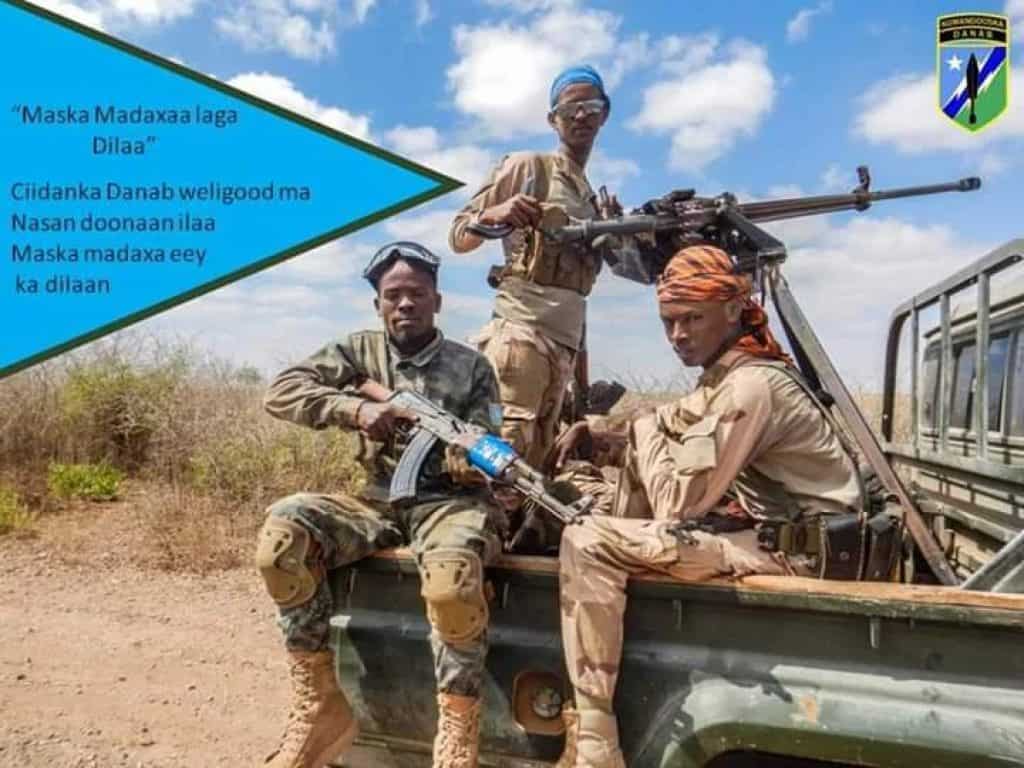
One US service member was wounded in a suicide assault launched by al-Qaeda’s Shabaab outside a military base in southern Somalia today. Additionally, at least two Somali special forces personnel were killed in the blast.
US military officials inside Africa Command (AFRICOM) have confirmed that American forces were alongside Somali special forces during an “advise, assist and accompany mission” outside of the southern city of Kismayo when Shabaab launched its suicide car bomb. The jihadist group also reportedly fired mortars into the fray.
AFRICOM officials have stated that one US soldier was wounded in the bombing, but is in stable condition. In its own statement, the Somali government also confirmed that two of its special forces soldiers, attached to the US-trained Danab unit, were killed. Three other Somali soldiers were also wounded.
The Danab Brigade is a US funded and organized special forces brigade that often operates alongside US special forces soldiers on the ground. The US has built up the brigade as part of its widening role to combat Shabaab.
The jihadist group routinely claims attacks against Danab’s units, which tracks with the brigade’s role in Somali-government offensives in the country.
According to data compiled by FDD’s Long War Journal, Shabaab’s bombing today means the group has conducted at least 23 suicide bombings inside Somalia since the beginning of the year. This includes two additional attempts outside of Kismayo in March.
Today’s suicide bombing comes in the wake of a series of successive Somali victories in the country’s south. On Sept. 2, Kenyan and Somali troops beat back a large Shabaab attack on the town of Afmadow in Lower Juba. Three days later, Somali forces recaptured Jana Abdalle, the same town in which today’s attack occurred, in the Lower Juba region.
While earlier today, Somali forces reportedly captured dozens of Shabaab fighters in a raid on Leego town in the southern Bay region. Additionally, two senior Shabaab commanders were killed in Middle Juba.
Shabaab often claims clashes with US troops inside Somalia. It most recently reported assaulting the joint US-Somali base at Bar Sanguuni outside of Kismayo on Aug. 29. US officials, however, did not confirm that incident.
But on Aug. 24, Shabaab said it used two improvised explosive devices during an ambush of American and Somali forces near Dar es-Salaam in the Lower Juba region.
AFRICOM did later confirm that incident while adding that one drone strike was launched in defense of its troops on the ground. With that strike, the US military has now launched 46 drone strikes in Somalia this year.
The propaganda battle
Today’s attack also set off a war of words online between the jihadist group and American officials. Shortly after the bombing, Shabaab claimed credit for the explosion through its Shahada News Agency. In its statement, the al-Qaeda branch inflates the casualty numbers by reporting that it “killed 4 American soldiers and wounded 3 others.”
It also claimed it killed 16 Somali forces and wounded 12 others, while destroying three American vehicles.
Speaking to Military Times, AFRICOM spokesman Col. Christopher Karns refuted Shabaab’s statement. “False claims consistently continue to be part of al-Shabab’s playbook as they seek to weaponize information and employ traditional tools of the tradecraft of terror, to include truck, car, and roadside bombs,” Karns said.
Shabaab then followed up with a longer, English-language statement from its military wing.
“Through deceptions, distortions, and outright fabrications, United States Africa Command has resorted to an incoherently coordinated campaign of disinformation, denial and deception in order to manipulate perceptions, sway public opinion, and neutralize the international opposition and controversy surrounding their barbaric campaign of drone strikes,” the statement reads.
It goes on to accuse AFRICOM of “deliberately attempting to hide the deaths of US soldiers in today’s attack.” Shabaab then argues that America should focus on its own domestic issues such as systemic racism and the global COVID-19 pandemic.
In attempting to justify its own barbaric attacks in East Africa, Shabaab tries to paint its fight in a purely defensive nature. For instance, it states that America “in its intrinsic hatred of Islam sees it fit to wage wars in Muslim countries.”
In Shabaab’s argument, this causes the US to “murder the Muslims of Somalia with impunity.” As a result, the jihadist group alleges that it must fight and kill both Americans and its allies in Somalia – the Somali government and military – in order to “restore the dignity of the Ummah [worldwide Islamic community].”
Even though Somalia’s civilians are the biggest victims of Shabaab’s violence, the group continues to try to posit itself as a protector of Somalia’s Muslims. In this regard, the jihadist group vows that it will “concentrate military operations on the American crusaders in order to defend their religion, land, and people from all forms of invaders and apostate allies.”
The statement then ends with a vague warning that “the Muslim land of Somalia will…forever remain a fortress of Islam, a sanctuary for every Muslim, and a graveyard of every invading crusader.”
Shabaab’s statement today continues the longstanding theme in both al-Qaeda’s and its own propaganda. For instance, following the raid on a US base in Kenya earlier this year, Shabaab spokesman Ali Mohamud Rage repeated similar mantras.
“For nearly half a century, the United States of America has been engaged in a brazen total war against Islam across the globe,” Rage said at the time, adding that the U.S. is conducting “a relentless self-declared crusade against Islam.”







